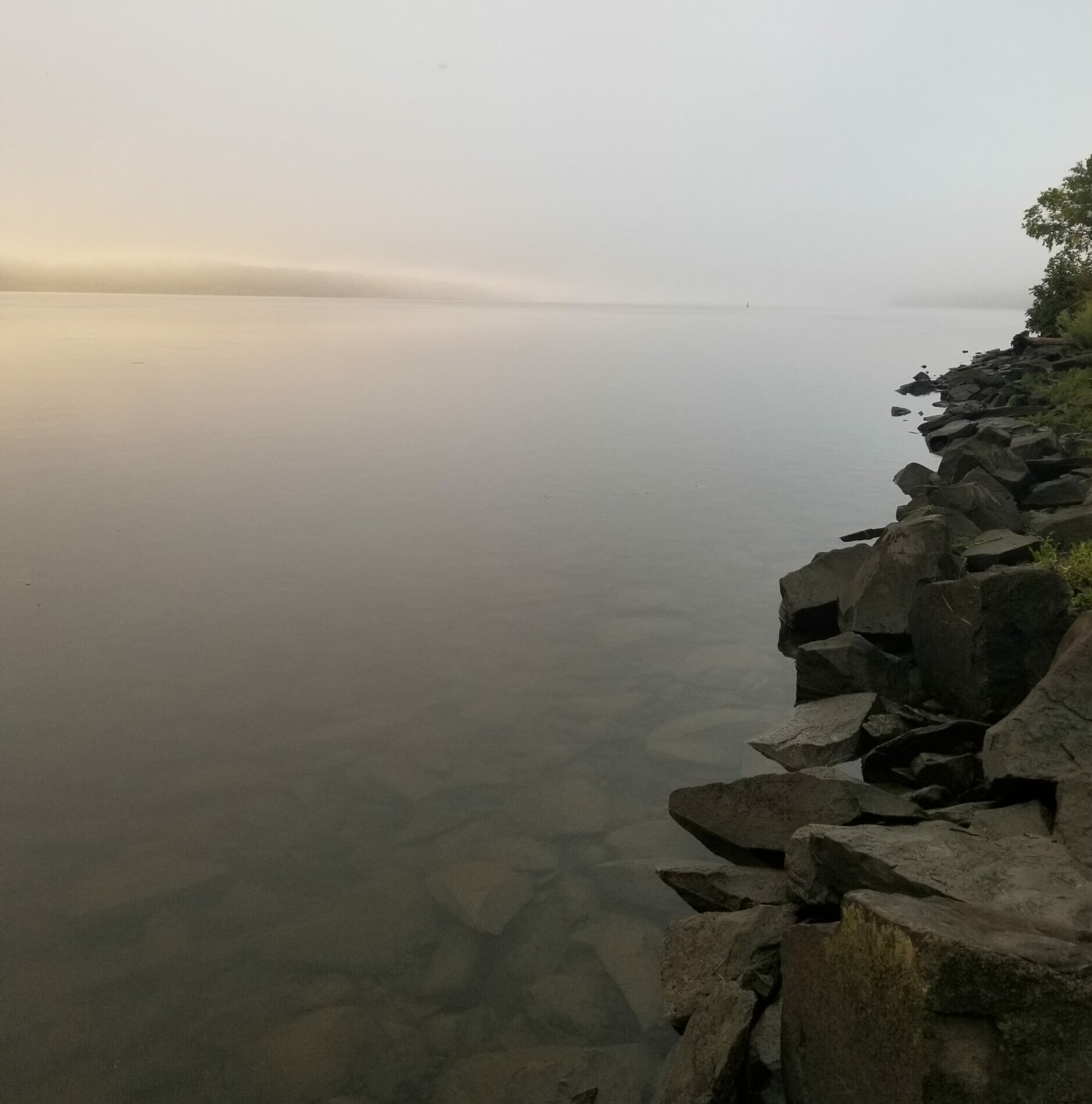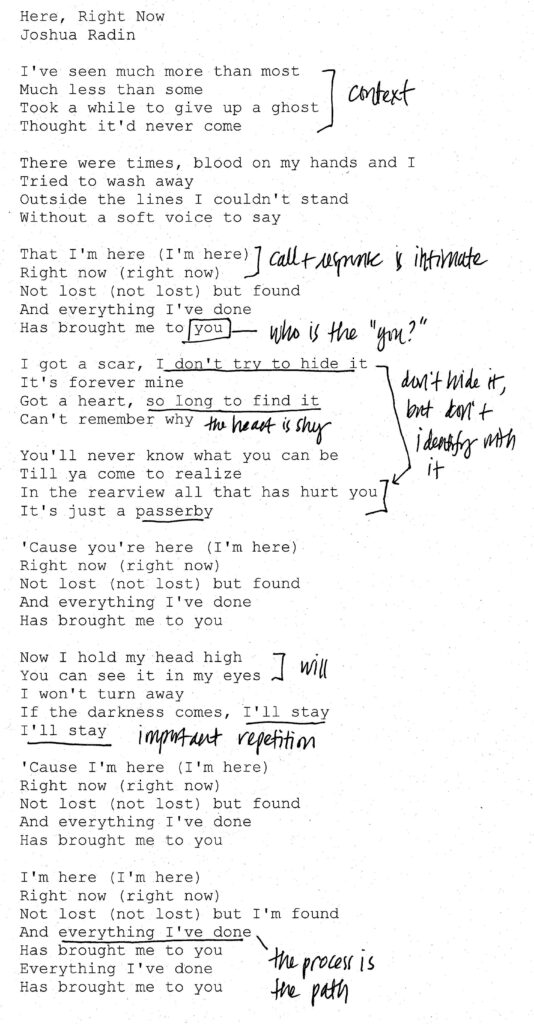
Sunday at 6:30 am, the last morning of the retreat and I’m standing at the edge of the Hudson River. The water is smooth and still, the fog hangs around the trees. I watch as it expands and lifts, the pink mist yielding to the deep blue of the emerging day.
On the way back to town, Essence speaks to me through the radio, as she often does when I’ve been turning my attention toward her. She brings me a song, and I play it to open up our session for the day. And then the song keeps playing in my head, even though a week has passed.
I thought that I would share it with you.
The song is called “Here, Right Now,” by Joshua Radin, and it evokes many of the themes of Presence and Inner Work that we explored during the retreat. Its combination of softness and directness has been helping me to digest the vast territory that we encountered in just three days, from the transmission of each center of intelligence to the importance of continuing to turn toward our experiences and surrender to openings for growth as they arise.
Starting with the title, of course, the knowing that the only place we can actually be is here in our bodies, in this moment. When we land ourselves here, right now, there is a sensation of substantiality in the Body Center, a feeling that we are occupying ourselves. We find ourselves in this moment, discover and rediscover ourselves, over and over and over again.

The first verse begins with setting a context for us to relate to the singer, who has “seen much more than most/much less than some.” During the retreat, we discussed how part of the intelligence of the Head Center is to provide orientation. The way that we frame a situation with our minds is how it occurs to us. The frame shapes the phenomena that we attend to, narrowing or opening the boundaries of what we can see. The frame of this song creates a lens that invites in a wide audience, and grounds us in the universal feeling that what we are searching for will never arrive.
The chorus initiates a call and response between a male and female voice, affirming “here” and “right now.” It is intimate and attuned, as if Essence is mirroring the singer. Whenever we are sincerely calling, sincerely wishing, Essence responds. It’s both soothing and stimulating at the same time.
The second part of the chorus tells us that, “everything I’ve done/has brought me to you.” My invitation to the group when we listened to the song was to inquire into “what ‘you’ is the singer talking about?” God, a lover, your own true self? Are these all names for the same thing?
There is a gentle holding of paradox in “I got a scar, I don’t try to hide it/it’s forever mine” juxtaposed with “all that has hurt you/it’s just a passerby.” We don’t have to hide what we’ve been through, but we don’t have to allow it to be our identity either. There’s both a will (“you can see in my eyes”) and a willingness (“if the darkness comes, I’ll stay/I’ll stay”). Don’t anticipate the darkness, but if it comes, trust that you have the internal strength to be with it.
One of the things that we discussed about the Heart Center during the retreat is that it is shy — you need to be patient and gentle to allow it to unfold. The way we’re used to locating ourselves through the heart consists of a specific repertoire of reactive emotions or a numbness that dampens our real feeling. This reactivity makes our identity feel complicated, distant, or overwhelming, like something that we have to shut down or generate through effort. The song echoes the simplicity of the heart when we stop numbing or efforting and allow it to reveal itself: “got a heart/so long to find it/can’t remember why.”
The repeated refrain of “everything I’ve done” reaffirms the path as the process. We cannot rewrite the past. Regretting it does not change it, it just keeps us in a loop of reactive emotions that reinforces the ego’s sense of unworthiness and lack of value. Can we see that everything that we’ve done and experienced is what has enabled us to be in the place that we are today?
When we have developed the spaciousness and resilience to authentically receive our experience in our hearts, what transforms us is remorse — feeling the sorrow of how whatever we’ve done or experienced has separated us from who we truly are. We can “give up the ghost” by choosing not to abandon ourselves this time. As we do this, we open ourselves to receive the next moment of here, right now.
Here, Right Now by Joshua Radin
Photograph of the Hudson River near Saugerties, NY by Julie Harris